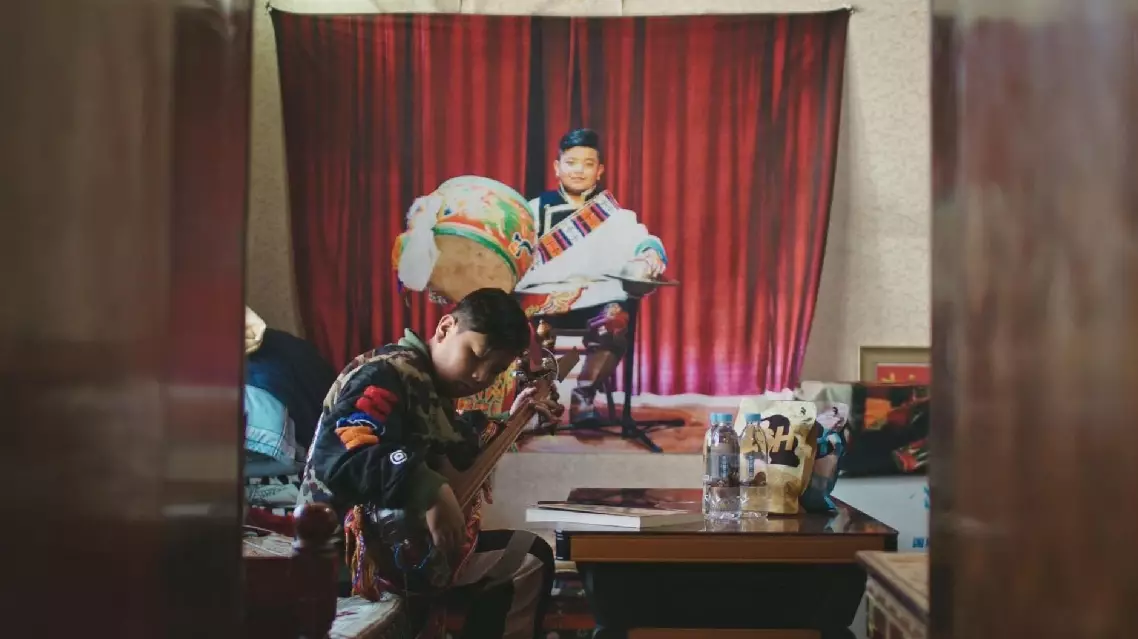The Beijing Municipal Bureau of Culture and Tourism on Saturday introduced 10 new cycling routes featuring key landmarks and local characteristics, aiming to enrich the cultural experience for cyclists as they hit the road to enhance fitness.
The new city cycling routes cover historic landmarks like the ancient Bell and Drum Towers, Yonghe Lama Temple, and the Imperial College, as well as popular sites such as the Shichahai Lake, Gulou East Avenue, and the famous food street Guijie. Cyclists can get a close-up look at a series of hutong, Beijing’s traditional alleys, and fully immerse themselves in the city's rich history and culture.
"During the day, the cool weather with blue skies and white clouds in autumn is ideal for cycling. At night, the sparking lights in the hutong and neon signs beyond offer a different view. This offers a wonderful experience for cycling tours in Beijing, making it a pleasure to appreciate every brick and tile in the city," said Zhang Zhifang, a cycling enthusiast.
Among the 10 cycling routes are those featuring distinct themes, like the Beijing Central Axis, Hutong, and Forbidden City routes, with relevant cultural displays along the way.
"The 10 night cycling routes we introduced today connect some legacy-based cultural landmarks along the Beijing Central Axis with various new shopping areas and popular spots. These routes provide a blend of cultural experience, relaxation, fitness, and tourism, fully showcasing Beijing vibrancy at night," said Zhao Man, deputy director of the publicity department at the Beijing Municipal Bureau of Culture and Tourism.

Beijing introduces new cycling routes featuring cultural landmarks

Beijing introduces new cycling routes featuring cultural landmarks
With dramyin lute and cymbals in hand and dressed in colorful traditional costume, 17-year-old Tenzin Norbu is among the proud youngsters in southwest China's Xizang Autonomous Region who have been helping preserve the centuries-old Tibetan opera, a multifaceted representative of Tibetan art and cultural heritage. Considered a living fossil of Tibetan culture, Tibetan opera is a comprehensive art combining folk songs, dance, storytelling, chant, acrobatics and religious performance. It was included on the UNESCO Representative List of the Intangible Cultural Heritage of Humanity in 2009.
Tenzin grew up listening to Tibetan opera along with his grandmother. The beat of the drum marked the rhythm of his childhood and quietly planted the seed of a dream.
The teenager leads a youth Tibetan opera troupe and guides his peers onto the very stage they once only dreamed of. He named it "Phudor Youth Tibetan Opera Troupe", because "Phudor" means "dream" in the Tibetan language.
"There are about 24 members in the troupe," said the teenager.
Tenzin once received a very special invitation to perform Tibetan opera for the opening ceremony of an art festival in Lhasa.
Although both their parents and teachers felt it's important for the children to be exposed to traditional culture from a young age, they didn't want it to affect their schoolwork.
The performance they were getting ready for was the first Sweet Tea House Art Festival, the troupe's very first public appearance. It's a rare opportunity for the children -- one too precious for them to pass up. But with their parents growing anxious about preparation for the performance eating into valuable study time, the children opted to rehearse in secret at weekends. Tenzin's family runs a tailor's shop. His father, who is hearing- and speech-impaired, is a superb tailor, while his mother helps him out by dealing with customers. Tenzin enjoyed Tibetan opera with his grandmother during childhood and later learned more about it from his uncle.
"Whenever I'm not feeling good, I'll take out the dramyin lute and the cymbals. When I hear the drumbeat, I get a feeling of elation that's simply indescribable," he said.
When Tenzin finally stepped onto the stage at the festival, he noticed that his parents were not in the audience. "My parents didn't have time to come to see my performance. But they always support me. They work hard every day, also for my sake. So, I'm happy whether they were here or not as long as I can keep performing Tibetan opera," said the youngster, believing that his passion for Tibetan opera will last a lifetime.

Childhood dream takes local boy onto Tibetan opera stage























































